We find that Cain moves out from God, and he establishes a civilization that is apart from God altogether.
The children of Cain establish a godless civilization.
Genesis 4:16-24 KJV
[16] And Cain went out from the presence of the LORD, and dwelt in the land of Nod, on the east of Eden.
[17] And Cain knew his wife; and she conceived, and bare Enoch: and he builded a city, and called the name of the city, after the name of his son, Enoch.
[18] And unto Enoch was born Irad: and Irad begat Mehujael: and Mehujael begat Methusael: and Methusael begat Lamech.
[19] And Lamech took unto him two wives: the name of the one was Adah, and the name of the other Zillah.
[20] And Adah bare Jabal: he was the father of such as dwell in tents, and of such as have cattle.
[21] And his brother’s name was Jubal: he was the father of all such as handle the harp and organ.
[22] And Zillah, she also bare Tubal–cain, an instructer of every artificer in brass and iron: and the sister of Tubal–cain was Naamah.
[23] And Lamech said unto his wives, Adah and Zillah, Hear my voice; ye wives of Lamech, hearken unto my speech: for I have slain a man to my wounding, and a young man to my hurt.
[24] If Cain shall be avenged sevenfold, truly Lamech seventy and sevenfold.
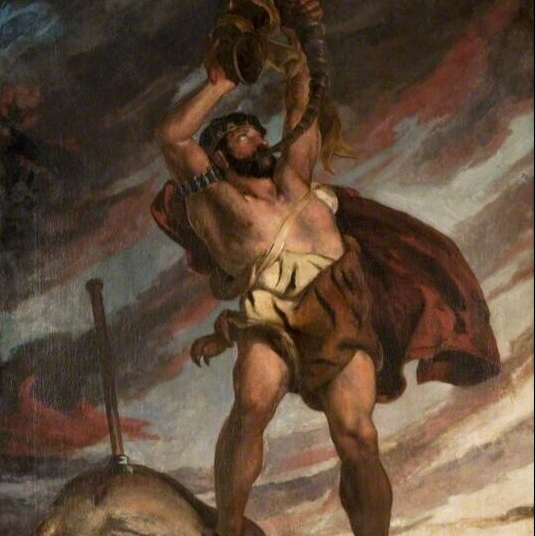
Genesis 4:16
And Cain went out from the presence of the LORD, and dwelt in the land of Nod, on the east of Eden.
Those in rebellion against God do not at all desire His Presence, and for all the obvious reasons. “Nod” means “wandering;” the majority of the human race “wander,” because they don’t know God and, therefore, have no peace.
I know a lot of folk who dwell in “the land of nod” when they are in church, but frankly, I do not know where the land of Nod really is. I have often wondered just where it is, and again, there is speculation about this.
But we are told that Cain went out and dwelt in that area.
In prior verses, Cain has murdered his brother and received God’s punishment. This included a loss of his ability to farm, and exile from his family. After receiving God’s promise to take vengeance on anyone who would kill him, Cain leaves. Specifically, he leaves God’s presence.
This phrasing is interesting, since it implies something more than just a physical action. Apparently, before the murder of Abel, Cain, and perhaps all humans enjoyed some special relationship with God.
Now Cain has lost that. The rest of the Bible will demonstrate that sin often separates us from God, as well as from other people.
Cain wanders, according to the curse given by God. However, in what seems to be a direct defiance of God’s punishment, he then settles down. Cain establishes a city (Genesis 4:17) to the east of the Garden of Eden in a land called Nod.
In Hebrew, the word Nod means “wandering.” This society is productive (Genesis 4:17–22), but seems prone to evil and depravity (Genesis 4:19, 23–24).

Genesis 4:17
And Cain knew his wife; and she conceived, and bare Enoch: and he builded a city, and called the name of the city, after the name of his son, Enoch.
“knew his wife” is the Biblical terminology for conception.
“builded a city” actually means “was building” or “began to build;” the idea is, it was not finished; and so it has been, and is, with the human race; nothing is ever quite finished with the unredeemed, simply because what is built doesn’t satisfy.
This carries the idea, due to the meaning of the name Enoch, that this city would be a place of education and learning — but it was education and learning without God.
Men have been doing this ever since. They like to call streets and cities by their own names or by names of loved ones. Even in Christian work you have schools named for individuals.
Men love to do that, whether they are Christian or whether they are after the order of Cain.
But here is where urban life, city life, began: “and he builded a city, and called the name of the city, after the name of his son, Enoch.” Cities have become one of the biggest problems that man has today.
The cities, they say, are dying, and yet people all over the world are flocking to the cities.
In spite of his fears, Cain’s life did not come to an end as a result of the murder of Abel. God’s punishment for his crime was severe, but not fatal. Instead of farming, Cain began to build a city where he had settled in the land called Nod.
This seems to run contrary to the punishment meted out by God, that Cain would be a wanderer. Then again, as mankind begins to multiply, God seems to be less directly involved in their lives—this would include allowing more room for people to sin and suffer their own consequences.
Whether Cain is blatantly defying God, or if the “wandering” God had in mind was simply to be forced into exile, the Bible does not say.
Cain also got married. Where did his wife come from? Our best understanding is that the murder of Abel happened decades—perhaps many years—after Cain and Abel were born. The first generations of humans after the garden lived for hundreds of years.
It is very likely that Adam and Eve had many more sons and daughters after Cain and Abel, and before Seth. Ancient genealogies very often only mention offspring directly related to the story at hand, so we would not necessarily expect the Bible to spell out every child of Adam and Eve.
It’s very possible, by the time we get to Cain’s wife, that there were other sons and daughters of Adam and Eve, who themselves had children and perhaps grandchildren. With such a long reproductive cycle, the population of the earth could have increased exponentially over several hundred years.
The point is that Cain likely married a sister or one of many nieces or even grandnieces. This early in human history, intermarrying with one’s direct sibling would not have carried the genetic risks it does now.
It was not forbidden by God; in fact, it would have been the only option for populating the earth. Later, as mankind’s biology becomes more polluted, God will forbid Israel from this practice.
Cain, apparently a proud father, names his city after his son Enoch.
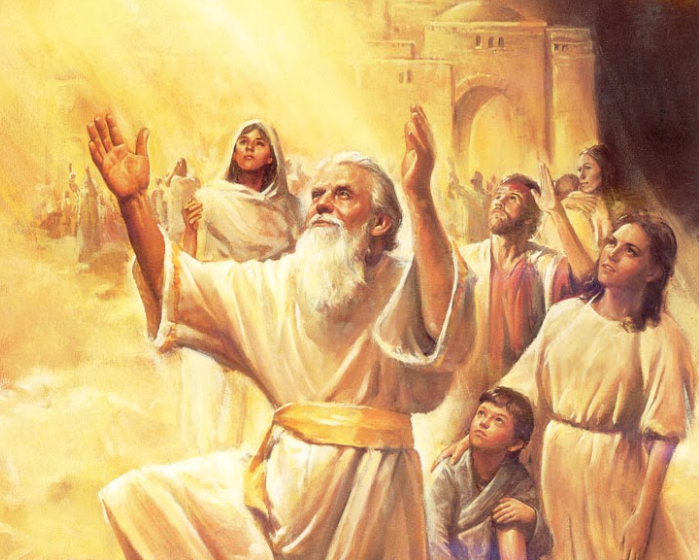
Genesis 4:18
And unto Enoch was born Irad: and Irad begat Mehujael: and Mehujael begat Methusael: and Methusael begat Lamech.
This means fathered. All of this was three hundred or more years after the creation of Adam and Eve.
This verse contains the first of what will be many genealogies in Genesis and in the Bible. Genealogies serve a valuable role in anchoring the text in a historical context and helping to approximate the passing of years and generations.
The stories in Genesis are about real men and women who were born, lived, and died in real time. Genealogies help us to remember and recognize that.
At the same time, a key point to remember in these genealogies is that they are not particularly detailed. There are many names not mentioned—brothers and sisters and others not specifically named.
Also, times are given in typical ancient style: in vague terms. The point of the genealogies is to show the flow of bloodline from one person to the next, not tgive exhaustive details on the entire family line.
In this case, the lineage being given is that of Cain, and his more notable descendants. The family line of Seth, who was born after the murder of Abel (Genesis 4:25), is given a separate explanation in the next chapter.
Some of the names used in this verse are similar or identical to names of different characters seen later in Genesis. Just as with modern families, given names in these stories are not always original.
Cain’s son Enoch—not the more famous one seen in the next chapter—has a son called Irad. Irad has a son called Mehujael. He has a son named Methushael, and he fathered Lamech.
Again, this is not the same as the father of Noah mentioned in the next chapter. The following verses will slow the history down to tell us more about the life of proud and violent Lamech.

Genesis 4:19
And Lamech took unto him two wives: the name of the one was Adah, and the name of the other Zillah.
The first instance of polygamy recorded in the Bible. Here is the beginning of polygamy—having more than one wife. Lamech now does that which is contrary to what God intends, contrary to what God has for man.
You will never find anywhere in the Scriptures that God approves of polygamy. If you read the accounts accurately, you will find that He condemns it.
He gives the record of it because He is giving a historical record, and that is the basis on which it is given to us here. “Adah” means pleasure or adornment. She was the first one to make it to the beauty parlor, I guess.
“Zillah” means to hide; I suppose that means she was a a woman who flirts. My fellow Christian Siblings, what two girls he had for wives! No wonder he had problems.
Later on we will see what happened. Here now is the beginning of civilization, the Cainitic civilization.
After tracing the generations from Cain to Lamech, the story slows down to give us a close look at Lamech and his family. The Bible gives no explicit reason for this, but it seems to be focused on the spiritual flaws in Lamech and his family.
For starters, Lamech took two wives, Adah and Zillah. Marrying multiple women was common throughout history, including the history of God’s people Israel, but this is the first mention of it in Scripture.
Many scholars see Lamech’s choice to marry two women as a rebellion against God’s design for marriage as described in Genesis 2:24.
In later verses, Lamech will brag about killing another man. This was not self-defense—the Hebrew word Lamech uses is the same used to describe Cain’s killing of Abel. Not only will Lamech boast about his crime, he will claim even greater immunity than Cain.
This blatantly evil, anti-God attitude sets the stage for the upcoming story of Noah, and God’s judgment on a depraved society.
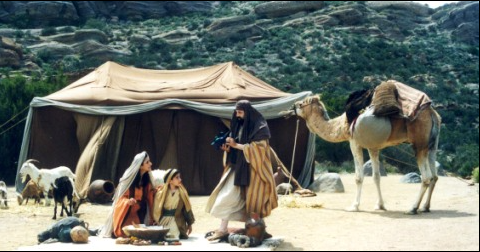
Genesis 4:20
And Adah bare Jabal: he was the father of such as dwell in tents, and of such as have cattle.
She gave birth to Jabal. The apostle Paul was a tent maker later on, but here is the first housing contractor. This is the very first rancher.
This section provides genealogies listing the important descendants of Cain. Ancient genealogies did not typically mention every single son or daughter.
Rather, they focused on important figures, or simply listed the bloodline from one person to another. Even then, generations would sometimes be skipped to make the list shorter.
Lamech is the seventh generation from Adam, through Cain. One of his two wives, Adah, gives birth to a son called Jabal. We’re told Jabal became the father of those who live in tents and have livestock.
In other words, Jabal and his descendants likely became a nomadic people managing herds of several kinds of animals, perhaps including sheep, cattle, and others.
Later, we will see Lamech bragging about his murder of a younger man. The society which came from Cain was not only defiant towards God, but boldly and arrogantly sinful. As we move close to the story of the flood, this is crucial for realizing just how depraved mankind will become.
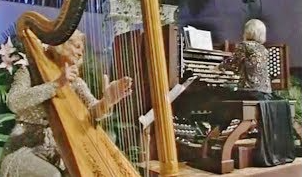
Genesis 4:21
And his brother’s name was Jubal: he was the father of all such as handle the harp and organ.
Here is the beginning of the musicians. When we hear some of the modern music today, I am sure there are many who would agree that it must have begun with Cain’s civilization!
It seems that Jubal was the originator of musical instruments; man’s ear is now filled with other sounds than those which issue from Calvary, and his eye is filled with other objects than a Crucified Christ.
The previous verse told of the life and work of Jabal, Lamech’s son with his wife Adah. This verse tells us of his brother Jubal, born of Lamech’s other wife Zillah. Jubal became a musician and fathered a line of musicians.
Specifically, Jubal and his offspring played the lyre, which is a stringed instrument, and the pipe.
It’s fascinating to note that just eight generations from Adam, a creative culture is blossoming. Human beings, made in the image of a Creator God, are beginning to express their creativity in one of the areas central to the culture of heaven: music.
Unfortunately, this passage also shows that Cain’s descendants are continuing his hateful, arrogant rejection of God. Soon, Jabal and Jubal’s father will brag about his murder of a younger man. And, he will have the nerve to claim an even greater immunity than Cain was given by God (Genesis 4:23–24).

Genesis 4:22
And Zillah, she also bare Tubal–cain, an instructer of every artificer in brass and iron: and the sister of Tubal–cain was Naamah.
Tubal-cain was the first one to begin to work with metals; the name of “Cain” was probably added to show that these were “Cainites;” “Naamah” means “beautiful”. Here we see the ones who are craftsmen.
The previous two verses told of the life and work of two of Lamech’s sons. This verse lists two others, both born of Lamech’s wife Zillah. Tubal-cain worked with the metals bronze and iron to forge instruments, likely tools and possibly weapons.
His sister’s name was Naamah. The picture that emerges from this description of Lamech, his wives, and his talented children is one of a thriving family and community.
Lamech’s extended family had access to resources and possessed wealth enough for innovation and investment of time and energy into music.
Right from the beginning, mankind is shown to be capable of creativity, innovation, industry, and productivity. As creatures made in the image of God (Genesis 1:27), humanity is uniquely able to create and discover.
But as the following verses will make clear, Lamech has some things in common with his murdering ancestor Cain. The society which Cain produced will soon overtake the earth, spreading evil, until God intervenes with the great flood.

Genesis 4:23
And Lamech said unto his wives, Adah and Zillah, Hear my voice; ye wives of Lamech, hearken unto my speech: for I have slain a man to my wounding, and a young man to my hurt.
We do not know whether he did or not, but he says that he slew in self-defense. And We do not know whether or not his two wives entered into this, or whether or not he was defending one of them.
We are not told how it happened.
Lamech, six generations removed from Cain, demonstrates that he shared Cain’s anger, violence, and arrogance—and then some. In this speech, continuing into the following verse, he brags about his sin in an almost unbelievable way.
He announces to his two wives that he has killed a man in revenge for wounding and/or striking him. We obviously don’t know the whole story. However, Lamech’s response indicates that his action was out of proportion with what was done to him.
The Hebrew word used for “kill” here is from the root word hā’rag, the same used to describe the murder of Abel in Genesis 4:8 and Moses’ murder of the Egyptian in Exodus 2:14.
He sounds proud and arrogant, and even more so in light of the following verse. The fact that he specifically directs this confession of murder to his wives can be interpreted in several ways. One prominent possibility is that this is meant to be a threat: “look what happens to people who cross me.”
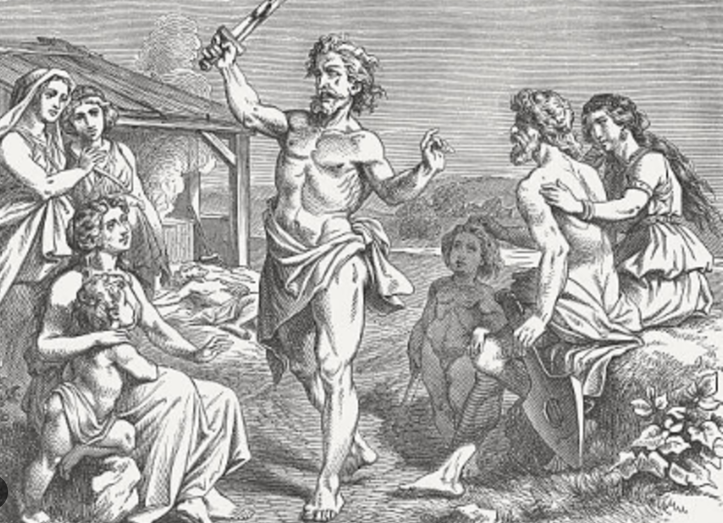
Genesis 4:24
If Cain shall be avenged sevenfold, truly Lamech seventy and sevenfold.
Lamech says, “If Cain got by with it, I can get by with it. After all, Cain did not slay in self-defense, but I have.” This is the first recorded poem in human history. Like so much poetry ever since, it glorifies immorality and murder, and denies coming wrath.
Man has attempted to deny judgment ever since; nevertheless, judgment one day is coming [Rev. 20:11-15].
The previous verse describes Lamech’s bold and seemingly arrogant announcement to his wives that he had killed a young man for striking and/or wounding him. We don’t know the whole story, but it sounds as if Lamech’s response was out of proportion to what was done to him.
Lamech uses the same Hebrew word to describe his action as Genesis 4:8 and Exodus 2:14, both referring to murderous acts.
Lamech apparently knew Cain’s story well, including the part about how God had marked Cain with a sign. This was meant to back up God’s promise to deliver vengeance seven-fold on anyone who killed Cain for killing Abel.
Lamech claims the same protection for himself, but without God’s apparent endorsement. Or perhaps he is declaring that he and his people will deliver the vengeance themselves without God’s help. It’s hard to know.
If Lamech is claiming God’s protection, it shows that he still carries an awareness of God as protector. But that would also imply a deeply corrupt understanding of God, believing that God’s power and protection could be presumed upon.
Another possibility is that Lamech is being defiant and arrogant—”spitting in the face of God,” so to speak—and celebrating his own evil.
Statements like this are key to understanding the context of the flood, where mankind is described as being deeply, perversely depraved (Genesis 6:5).
I hope that you have really enjoyed this post,

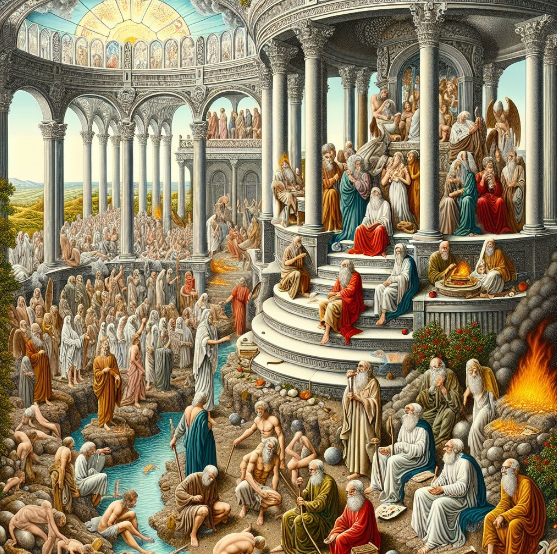











Thank you for the verse by verse lesson on Cain.
His is a tragic story, even though civilization grew through his descendants. It is interesting that God tells us the beginning of so many things like tent dwelling and music.
I think early man was very intelligent having come Adam. Probably the inventive mind was very fine tuned.
Keep up the good lessons.
Hello Scott,
You are welcome for the verse by verse lesson on Cain.
And Thank You for commenting on this episode of HBS & DwJ. I will continue to bring the information forward for all to enjoy.
Thanks again,
Have A Blessed One Scott!
The story referred to here is likely that of Cain and Abel from the book of Genesis in the Bible.
While the story of Cain and Abel is tragic, as it involves murder and the first recorded act of violence in human history, it is also a story of growth and progress.
After Cain kills Abel, he is banished from his family and forced to wander the earth. However, he eventually settles in the land of Nod and builds a city, becoming the founder of civilization.
Despite the tragic nature of Cain and Abel’s story, it is interesting to note that God also tells us about the beginning of things like tent dwelling and music. This suggests that even in the midst of tragedy, there is always something to be learned and gained.
The story of Cain and Abel reminds us that progress and growth often come at a cost, but that even in our darkest moments, there is always the possibility for something new and beautiful to emerge.
Hello Herman,
Hope all is well with you.
Yes, The Children Of Cain And A GODLESS Civilization is directly from the Genesis Book in the Holy Bible. This is Holy Bible Study & Discussion with Jerry, other wise known as HBS & DwJ Podcast.
Thank you for stopping by, looking forward to hearing from you more.
Blessings My Friend!
“The Children of Cain and a Godless Civilization” on God in Our Lives Everyday explores the consequences of living in a godless society.
It delves into the story of Cain’s descendants and highlights the moral decay and challenges they faced. The article emphasizes the importance of faith and spiritual values in building a just society.
It serves as a reminder to nurture a relationship with God and uphold His teachings for a more fulfilling existence.
Thank you Steve.
I appreciate you taking the time to let me know about your interest in The Children Of Cain And A GODLESS Civilization.
Your comments are definitely appreciated, I’d love to hear back from you about other episodes.
Thanks for stopping by,
Blessings My Friend!
That was an interesting read.
Always thought of Cain as the bad brother who was banished, but never knew that he went on to father generations.
I find the history of the Bible very interesting even though I sometimes battle to understand it.
Thank you for this very detailed and accurate account of these early days.
Hello Michel,
Thank you for stopping by and considering The Children Of Cain And A GODLESS Civilization an interesting read. Even though civilization grew through his descendants, they were a GODless Civilization. The story of Cain is a tragic one indeed.
I often pray to GOD for understanding during my Holy Bible Study Sessions. It is amazing when the revelations are revealed, because I know they are spiritual and not carnal.
Thank You for commenting on this episode of HBS & DwJ.
Blessings My Friend!
Based on my personal experience and observations, I have witnessed the consequences of a society that neglects its spiritual foundation.
It is disheartening to see the erosion of moral values, the rise of selfishness, and the diminishing sense of community that can result from a godless civilization.
Your post powerfully highlights the importance of faith, values, and spirituality in shaping a cohesive and compassionate society. It serves as a reminder that nurturing a deep connection with a higher power can inspire love, empathy, and a collective sense of purpose.
I appreciate your effort in shedding light on this topic and fostering meaningful dialogue about the role of spirituality in building a harmonious civilization.
Hello again Dave,
Thank you for commenting on another HBS & DwJ Podcast episode.
It pleases me to learn that you continue to read material produced by me. This definitely lets me know that the content is doing its job, by producing results.
I really appreciate you sharing your personal experience and observations with us. I must agree, It is disheartening to see the erosion of moral values, the rise of selfishness, and the diminishing sense of community that can result from a godless civilization.
Thank you for your adoration concearning this information, and thanks again for commenting.
Blessings My Friend!
It appears that you know a lot about this topic. I expect to learn more from your upcoming updates.
Hello Felix,
Thank you for your comment.
Blessings My Friend!